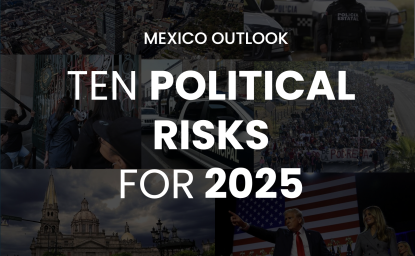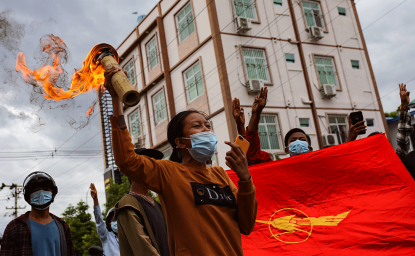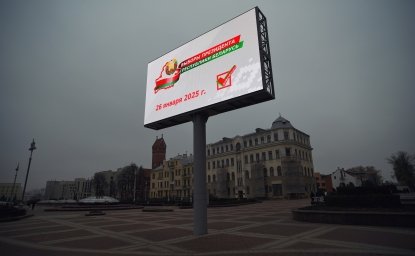The Congress of Ukrainian and Russian intelligentsia “Ukraine – Russia: the Dialogue” took place in Kyiv on April 24-25, 2014. The meeting was co-sponsored by Mikhail Khodorkovskiy’s “Open Russia”, Russian PEN Center (chaired by Liudmila Ulitskaya) and “The Third Republic” movement (Yuriy Lutsenko)[1]. The Ministry of Youth and Sport of Ukraine (Minister Dmytro Bulatov) provided the premises for the congress at “Olimpiyskyi” sports complex. From each Russian and Ukrainian side, there were invited 150 participants. So many journalists, scholars, writers, civil activists and cultural workers took part in the congress – discussion halls were packed and the working rhythm persisted through the last hours of the forum.
Taking into account the ambiguous attitudes and interpretations of the forum in Ukraine, I would like to tell about my impressions of the congress and give it my own appraisal as a civil (rather, civil-political) action that occurred in the hard time for Ukraine – the time of undeclared terrorist war of Putin’s totalitarian regime against Ukraine.
As a scholar long since interested in the problems of regionalism, federalism and modernization, in my older publication I philosophized a lot about the ambivalence of federalism, its advantages and disadvantages, different depth of regional delimitations in Ukraine, as well as terminology to describe these differences[2] and rather unsuccessful process of forming the common societal culture[3]. However, the current military and political situation forces not to speak about tendencies and concepts, or even strategies, but rather discuss tactical steps necessary to ensure preservation of the state and its further viability. Briefly speaking, the content of my presentation was an answer to the question put in the name of the panel: “Ukrainian federalism – is it a way out of impasse or a political trap”? My opinion is unequivocal – certainly, it is a trap, and we should not get into it. It is easy to receive evidence of this, if we try exploring, why and for what purpose, who and how is trying to realize this Kremlin-supported scenario.
Taking into account the differences between Donbas and the rest of Ukraine in the political and wider societal culture (mentally encoded system of values determining social behavior of the population of a certain country or region), to my mind, it would be more logical to conduct a referendum on separation of this territory from Ukraine, rather than on federalism. However, we cannot go out on a limb like that for reasons of long-term national interests, as well as urgent interests of the majority of Donbas population that is against separation and even federalism, although it behaves passively.
In any case, Ukraine does not have to abruptly rearrange the state political system in the period of crisis only because radicals supported by Putin demand this. Ukraine must go its own way, taking into consideration the needs of the regions, but first of all taking care of strengthening the state institutions. Any structural reorganization should be done on the basis of the Constitution and law (including the law on referendum) after new legitimate authorities are elected. There are no forbidden themes for political discussions, however, all proposals should be justified and their implementation should be performed according to democratic and legally prescribed procedure.
As a “symbolic action of solidarity of Russian and Ukrainian intelligentsia”, a ground for exchange of opinions and establishing contacts for the future, the Congress definitely deserves a positive rating. “Accommodation” of intellectuals of the two countries has happened, though the depth of its influence on mutual perception of parties is under question. Yet, there is a plan to continue the contacts and even launch cooperation within the framework of permanent organizations.
However, the tasks were much more large-scale. The answer to the question, whether the means of counteracting information war and state propaganda have been found, is rather negative, especially given that no “road map” have been elaborated (and it could not have been, to my mind) to overcome “interstate confrontation,” i.e. “aggressive policy of Putin against Ukraine.” The level was set too high, as there are not enough friends of post-revolutionary Ukraine in Russia to influence the policy.
The resolution was announced in Russian by Aleksandr Morozov and in Ukrainian by Marianna Kiyanovska[4].
No practical steps were prescribed in the resolution, but evaluations were clear and understandable. The document states that Russia and Ukraine “have approached the dangerous edge of the real war” and that in such dramatic situation “intellectuals and cultural workers of both countries must do everything to restore confidence and partner relations between our peoples and countries.” Participants clearly declared their disagreement with Russia’s interference in Ukraine’s internal affairs, particularly, in the issues of the state structure, local self-governance and language policy (with respect to cultural and language rights of minorities). They also expressed their support for the “territorial integrity of Ukraine in its constitutional borders,” as well as their concern about Russia converting into a “closed, aggressive country, the policy of which violated the norms of international law.” “In critical moments of history,” – it is said in the resolution – “responsibility of intellectuals and cultural workers is sensed very acutely. We are ready to do everything that depends on us to put bounds to Russian-Ukrainian confrontation,” and “we believe that European choice is the only right way for both Ukraine and Russia.”
Taking into account the discord of opinions and statements during the congress, this document, to my mind, has come out surprisingly unified and generally acceptable.
Generally, the meeting may be evaluated as large-scale, informative, but only partially successful (taking into consideration its possible political consequences). Yet, as for me, a great value of communication is in communication itself, and it did happen. I also think that most forum participants are hoping on new stages of dialogue, no matter how hard it is, since there is no alternative to live communication in the efficiency of its influence on the participants.
P.S. Some media have called the Congress a “ball of Khodorkovskiy”, there were opinions that such bombastic events are now out of time for Ukraine. So, was it a “feast during the plague?” I strongly object such evaluation. Although banquets, accommodations, and other logistics were on the high level, these factors were set aside (under current Ukrainian conditions), while work moral, democratic atmosphere and serious exchange of opinions were on the first place.
[1] The tasks of the Congress are states at: http://employers.com.ua/index.php/timeline/novosti-ukrainy/504-26-aprelya-kharkov-kongress-ukraina-rossiya-dialog.
[2] Ukrayinskyi federalism: politychni aspekty // Yi. – Issue 23. – 2002. (Presentation at the seminar of “Yi” journal and discussion). – p. 81-120; Kolodii Antonina. Ukrayinskyi rehionalism yak stan kulturno-politychnoyi poliaryzovanosti // Agora. Issue 3: Ukrayina – rehionalnyi vymir. – Kyiv, 2006. – p. 69-91. – http://www.kennan.kiev.ua/Library/Agora/Agora03.pdf
[3] See: Kolodii Antonian. Sotsietalna kultura yak chynnyk natsionalnoyi konsolidatsii / Konsolidatsiya ukrayinskoho narodu: konstytutsiyno-pravovi aspekty. Zbirnyk statey za materialamy naukovo-praktychnoyi konferentsii 28 liutoho – 1 bereznia 2013. Lviv. Ivan Franko Lviv National University. – Lviv. Lviv university publishing house, 2013. – p. 40-54.
[4] The full text of the resolution see at: Rezoliutsiya Kongressa “Ukraina-Rossiya: dialog,” April 24-25, 2014. – http://polit.ru/article/2014/04/25/resol_ukraine_russia_dialog/




